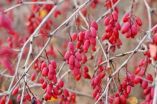(Press-News.org) The use of chemotherapy in terminally-ill cancer patients in the last months of life is associated with increased risk of undergoing resuscitation and dying in an intensive care unit, suggests a paper published on bmj.com today.
The researchers suggest that end-of-life discussions may be particularly important for patients receiving chemotherapy and suggest that caregivers should ensure that patients are aware of their prognosis, likely outcomes of treatment and that their choices are aligned with their end-of-life values.
Chemotherapy is used to treat cancer with the goal of reducing symptoms and improving survival. Between 20-50% of patients with incurable cancers undergo chemotherapy within 30 days of death.
Research suggests that the use of chemotherapy within two weeks of death is associated with higher rates of hospitalisation but only 6% of patients receive chemotherapy this late. Other research has not specifically examined whether the use of chemotherapy in the months leading up to a patient's death is associated with the need for intensive medical care in the last week of life or death.
Researchers from the US therefore looked to determine whether terminally ill cancer patients who in the months leading up to death were receiving chemotherapy were more likely to receive intensive medical care in the last week of life, and die in an intensive care unit, compared with those who were not. They used data from "Coping with Cancer," a study of terminally ill cancer patients designed to examine how certain factors influence patients' medical care.
The report included 386 patients between 2002 and 2008, who died during the course of the study. All participating sites were from across North America.
The main outcome of the research was end-of-life treatment and location of death with the second outcome being length of survival, late hospice referrals and attainment of preferred place of death.
In the cohort of 386 terminally ill cancer patients, 56% were receiving chemotherapy and were more likely to be younger, married, better educated, have a better overall quality of life and psychological wellbeing compared with those who were not. Patients receiving chemotherapy were also less likely to acknowledge that their illness was terminal and reported having discussed their end-of-life wishes with a physician. They were also less likely to have completed a do-not-resuscitate order.
Out of the 216 patients who opted for chemotherapy, 12% needed cardiopulmonary resuscitation or ventilation, 13% needed admitting to an intensive care unit and 11% needed a feeding tube in the last weeks of life. They were also more likely to undergo a late hospice referral.
The researchers suggest that chemotherapy is used less among patients who are recognised to have a life expectancy of less than six months as this "may reduce intensive end-of-life care and promote earlier access to hospice services, thus improving the quality of […] care". They say further studies should examine whether patients who are aware that chemotherapy is not intended to cure them still want to receive chemotherapy, confirm the negative outcomes of palliative chemotherapy, and determine if end-of-life discussions promote more informed decision-making and receipt of value-consistent care.
In an accompanying editorial, Professor Mike Rabow from the University of California, says that although most patients with metastatic cancer choose to receive chemotherapy, evidence suggests that most do not understand its intent. He says that Prigerson et al's paper suggests the need to "better identify patients who are likely to benefit from chemotherapy near the end of life" and he encourages oncologists to discuss with patients the broader implications of chemotherapy when making decisions about treatment.
He adds that the choice to start chemotherapy should not be the end of decision making and that future work should "explore how a decision to start chemotherapy, even many months before death, comes to be associated with how and where someone dies".
INFORMATION:
Research: Associations between palliative chemotherapy and adult cancer patients' end of life care and place of death: prospective cohort study
Editorial: Chemotherapy near the end of life
Chemotherapy in last months of life associated with increased risk of dying away from home
Researchers suggest more discussions about end-of-life wishes between patients and physicians
2014-03-05
ELSE PRESS RELEASES FROM THIS DATE:
Mother's diet linked to premature birth
2014-03-05
Pregnant women who eat a "prudent" diet rich in vegetables, fruits, whole grains and who drink water have a significantly reduced risk of preterm delivery, suggests a study published on bmj.com today.
A "traditional" dietary pattern of boiled potatoes, fish and cooked vegetables was also linked to a significantly lower risk.
Although these findings cannot establish causality, they support dietary advice to pregnant women to eat a balanced diet including vegetables, fruit, whole grains, and fish and to drink water.
Preterm delivery (before 37 weeks of pregnancy) is ...
Does palliative chemotherapy palliate?
2014-03-05
NEW YORK (March 4, 2014) -- Terminal cancer patients who receive chemotherapy in the last months of their lives are less likely to die where they want and are more likely to undergo invasive medical procedures than those who do not receive chemotherapy, according to research in this week's BMJ. The findings underscore a disconnect between the type of care many cancer patients say they want and the kind they receive, and highlight the need for clearer and more balanced discussion of the harms and benefits of palliative chemotherapy at the end of life by doctors, patients ...
What makes flying snakes such gifted gliders?
2014-03-05
WASHINGTON D.C. Mar. 4, 2014 -- Animal flight behavior is an exciting frontier for engineers to both apply knowledge of aerodynamics and to learn from nature's solutions to operating in the air. Flying snakes are particularly intriguing to researchers because they lack wings or any other features that remotely resemble flight apparatus.
Before you envision flying snakes raining down from the sky, the ones involved in this study are small -- about 1 meter in length and the width of your thumb -- and live in the lowland tropical forests of Asia and Southeast Asia.
Virginia ...
Meat and cheese may be as bad for you as smoking
2014-03-05
MARCH 4, 2014 — That chicken wing you're eating could be as deadly as a cigarette. In a new study that tracked a large sample of adults for nearly two decades, researchers have found that eating a diet rich in animal proteins during middle age makes you four times more likely to die of cancer than someone with a low-protein diet — a mortality risk factor comparable to smoking.
"There's a misconception that because we all eat, understanding nutrition is simple. But the question is not whether a certain diet allows you to do well for three days, but can it help you survive ...
Cultural world heritage threatened by climate change
2014-03-05
From the Statue of Liberty in New York to the Tower of London or the Sydney Opera House -- sea-level rise not only affects settlement areas for large parts of the world population but also numerous sites of the UNESCO World Heritage. This is shown in a new study by Ben Marzeion from the University of Innsbruck and Anders Levermann from the Potsdam Institute for Climate Impact Research.
"The physical processes behind the global rise of the oceans are gradual, but they will continue for a very long time," says climate scientist Ben Marzeion. "This will also impact the cultural ...
Sea-level rise threatens UNESCO World Heritage sites
2014-03-05
Some of the world's most recognisable and important landmarks could be lost to rising sea-levels if current global warming trends are maintained over the next two millennia.
This is according to a new study, published today, 5 March, in IOP Publishing's journal Environmental Research Letters, that has calculated the temperature increases at which the 720 sites currently on the list of UNESCO World Heritage sites would be impacted by subsequent sea-level rises.
The Statue of Liberty, Independence Hall, Tower of London and Sydney Opera House are among the 136 sites that ...
Passive smoking causes irreversible damage to children's arteries
2014-03-05
Exposure to passive smoking in childhood causes irreversible damage to the structure of children's arteries, according to a study published online today (Wednesday) in the European Heart Journal [1].
The thickening of the arteries' walls associated with being exposed to parents' smoke, means that these children will be at greater risk of heart attacks and strokes in later life. The researchers from Tasmania, Australia and Finland say that exposure to both parents smoking in childhood adds an extra 3.3 years to the age of blood vessels when the children reach adulthood.
The ...
Lower index to ring finger ration associated with higher risk of osteoarthritis in knee
2014-03-05
A new study published online today in the journal Rheumatology has found that the lower the ratio between a person's index finger (2D) and their ring finger (4D), the higher their risk of developing severe osteoarthritis in their knees, requiring a total knee replacement.
Osteoarthritis (OA) is a major public health problem linked with significant disability in knees and hips. Hormonal factors are thought to play a role, which is thought to account for the well documented difference in prevalence of OA between men and women. Anthropological studies have suggested that ...
Are plants more intelligent than we assumed?
2014-03-05
This news release is available in German.
Leipzig. Plants are also able to make complex decisions. At least this is what scientists from the Helmholtz Center for Environmental Research (UFZ) and the University of Göttingen have concluded from their investigations on Barberry (Berberis vulgaris), which is able to abort its own seeds to prevent parasite infestation. The results are the first ecological evidence of complex behaviour in plants. They indicate that this species has a structural memory, is able to differentiate between inner and outer conditions as well ...
Hot on the trail of cellular metabolism
2014-03-05
UCPs or uncoupling proteins are present in mitochondria, the powerhouse of each cell in the body. The functions of most of the five known UCPs remain mysterious (UCP2-UCP5), whereby only the distinct function for UCP1 has thus far been discovered. UCP1 is responsible for heat production when muscle activity is deficient such as is the case with babies and animals in hibernation. The research team at the Department of Physiology and Biophysics at the University of Veterinary Medicine in Vienna were able to provide a fundamental explanatory concept for the function of UCP2 ...
LAST 30 PRESS RELEASES:
Science reveals why you can’t resist a snack – even when you’re full
Kidney cancer study finds belzutifan plus pembrolizumab post-surgery helps patients at high risk for relapse stay cancer-free longer
Alkali cation effects in electrochemical carbon dioxide reduction
Test platforms for charging wireless cars now fit on a bench
$3 million NIH grant funds national study of Medicare Advantage’s benefit expansion into social supports
Amplified Sciences achieves CAP accreditation for cutting-edge diagnostic lab
Fred Hutch announces 12 recipients of the annual Harold M. Weintraub Graduate Student Award
Native forest litter helps rebuild soil life in post-mining landscapes
Mountain soils in arid regions may emit more greenhouse gas as climate shifts, new study finds
Pairing biochar with other soil amendments could unlock stronger gains in soil health
Why do we get a skip in our step when we’re happy? Thank dopamine
UC Irvine scientists uncover cellular mechanism behind muscle repair
Platform to map living brain noninvasively takes next big step
Stress-testing the Cascadia Subduction Zone reveals variability that could impact how earthquakes spread
We may be underestimating the true carbon cost of northern wildfires
Blood test predicts which bladder cancer patients may safely skip surgery
Kennesaw State's Vijay Anand honored as National Academy of Inventors Senior Member
Recovery from whaling reveals the role of age in Humpback reproduction
Can the canny tick help prevent disease like MS and cancer?
Newcomer children show lower rates of emergency department use for non‑urgent conditions, study finds
Cognitive and neuropsychiatric function in former American football players
From trash to climate tech: rubber gloves find new life as carbon capturers materials
A step towards needed treatments for hantaviruses in new molecular map
Boys are more motivated, while girls are more compassionate?
Study identifies opposing roles for IL6 and IL6R in long-term mortality
AI accurately spots medical disorder from privacy-conscious hand images
Transient Pauli blocking for broadband ultrafast optical switching
Political polarization can spur CO2 emissions, stymie climate action
Researchers develop new strategy for improving inverted perovskite solar cells
Yes! The role of YAP and CTGF as potential therapeutic targets for preventing severe liver disease
[Press-News.org] Chemotherapy in last months of life associated with increased risk of dying away from homeResearchers suggest more discussions about end-of-life wishes between patients and physicians


